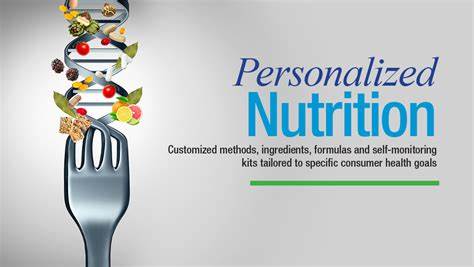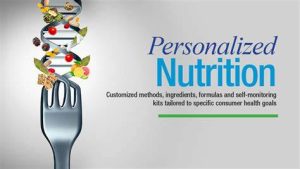- 19 October 2023
- 170
Genetic Testing and DNA-Based Diets: Shaping Personalized Nutrition

The field of nutrition is evolving, and personalized nutrition is at the forefront of this transformation. Genetic testing and DNA-based diets are revolutionizing how individuals approach their dietary choices. These approaches offer the promise of highly personalized nutrition recommendations based on a person’s unique genetic makeup. In this exploration, we will delve into the role of genetics in personalized nutrition and the potential benefits it offers to those seeking a truly tailored approach to their dietary needs.
The Role of Genetics in Personalized Nutrition
Genetics plays a fundamental role in determining how our bodies respond to various nutrients and foods. Genetic variations can impact factors such as nutrient metabolism, food tolerances, and disease risks. By analyzing an individual’s genetic profile, it becomes possible to provide dietary recommendations that are finely tuned to their unique genetic characteristics. Here’s how genetic insights are shaping personalized nutrition:
1. Nutrigenomics
Nutrigenomics is a field of study that examines how an individual’s genes interact with their diet. It identifies specific genetic variations that influence an individual’s nutritional needs and responses. By understanding these genetic variations, personalized dietary recommendations can be created.

2. Targeted Recommendations
Genetic testing enables the identification of dietary components that may be particularly beneficial or detrimental to an individual. For example, some people may have a genetic predisposition to lactose intolerance, while others may have a higher need for certain vitamins or minerals.
3. Disease Risk Assessment
Genetic insights can be used to assess an individual’s risk of developing certain health conditions based on their genetic profile. This information can inform dietary recommendations that help mitigate these risks.
4. Weight Management
Genetic testing can shed light on an individual’s genetic predisposition to weight gain or obesity. This information can be used to create tailored strategies for effective weight management.
The Benefits of Genetic-Based Nutrition
The integration of genetics into personalized nutrition offers several potential benefits:
- Highly Tailored Recommendations: Genetic-based diets provide recommendations that are uniquely suited to an individual’s genetic makeup, optimizing nutrient intake and minimizing potential health risks.
- Enhanced Health Outcomes: By aligning dietary choices with an individual’s genetics, there is potential for improved health outcomes and a reduced risk of developing diet-related health conditions.
- Optimized Nutrient Intake: Genetic insights can guide individuals toward the right balance of nutrients, ensuring that they are receiving the right vitamins, minerals, and macronutrients.
- Personalized Weight Management: Genetic testing can aid in crafting weight management strategies that are more effective and sustainable.
- Greater Adherence: Highly personalized diets are more likely to be adhered to, as they are tailored to an individual’s preferences and genetic needs.
Challenges and Considerations
While genetic-based nutrition holds promise, there are challenges and considerations to be aware of:
- Complexity: Genetics is a complex field, and interpreting genetic data can be challenging. This underscores the importance of involving healthcare professionals or registered dietitians in the process.
- Ethical and Privacy Concerns: Genetic testing raises ethical and privacy concerns, including data security and the potential for the misuse of genetic information. Ensuring secure and responsible handling of genetic data is crucial.
- Cost: Genetic testing and personalized dietary plans can be costly and may not be accessible to everyone.
- Environmental and Lifestyle Factors: Genetics is just one piece of the puzzle. Environmental and lifestyle factors also play a significant role in health and nutrition, and these should not be ignored.
The Future of Personalized Nutrition
Genetic testing and DNA-based diets are poised to play an increasingly significant role in the future of personalized nutrition. As research in the field of nutrigenomics advances, we can expect more precise and effective dietary recommendations that are tailored to an individual’s unique genetic profile. However, it’s important to approach these technologies with care, ensuring that ethical considerations and data security are upheld.

Consulting with healthcare professionals or registered dietitians who are trained in genetic-based nutrition can provide valuable guidance for those seeking highly personalized dietary recommendations. As the field of personalized nutrition continues to grow, it offers the potential for more precise and effective dietary strategies that can improve overall health and well-being.

